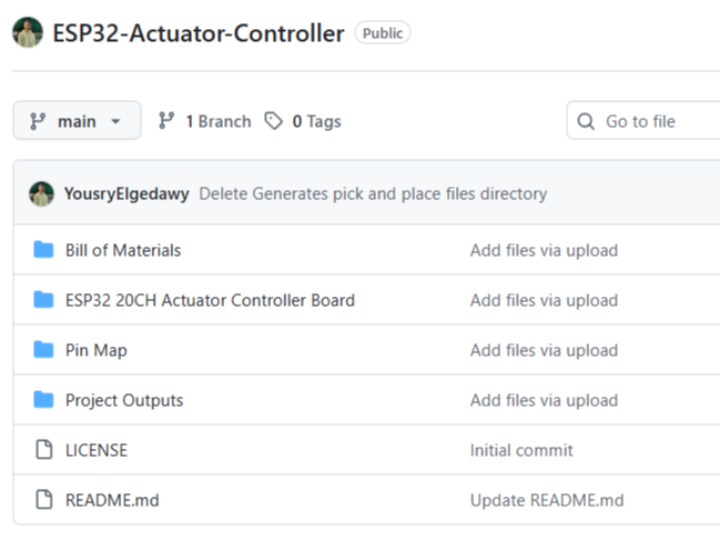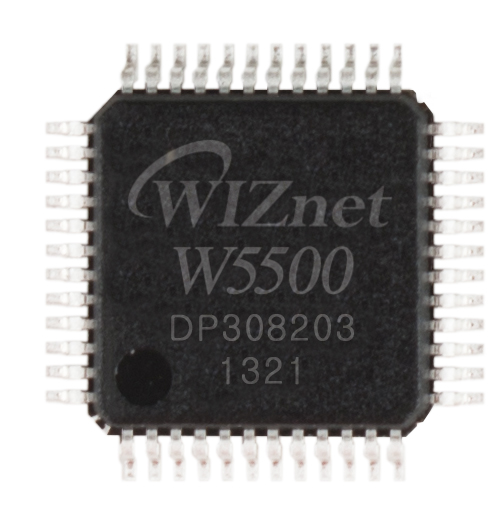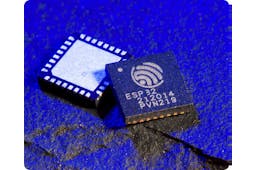ESP32-Actuator-Controller
ESP32-Actuator-Controller

A Hardware-Focused Look at an Ethernet-Controlled Industrial I/O Board
Wired Ethernet remains a reliable and interference-resistant communication method for industrial control systems.
This article examines a publicly shared hardware project that integrates the ESP32-S3 microcontroller and the WIZnet W5500 Ethernet controller to build a 20-channel actuator controller.
Although the repository does not include software, the complete schematic provides a clear view of how a network-controlled industrial output board can be designed.
1. Overview
The board integrates four major functional blocks into a single PCB:
- ESP32-S3 – main controller
- WIZnet W5500 – wired Ethernet interface
- 24-V power input stage – industrial-grade power handling
- 20 MOSFET-based SSR outputs – for controlling external loads
Together, these blocks form a network-enabled multi-channel actuator/relay controller suitable for automation and distributed I/O applications.
2. Power Stage – Designed for Industrial 24-V Systems
The schematic (Page 1) shows that the board is powered by a 24-V DC input, a common standard in factory automation.
The power circuitry includes:
- Reverse-polarity protection
- TVS diode protection
- High-current fuse
- 24 V → 5 V buck converter (LMR51430)
- 5 V → 3.3 V LDO regulator (LD39200)
This topology ensures stable operation of the ESP32-S3 and W5500 in demanding environments.
3. Main MCU – ESP32-S3
The board uses the ESP32-S3-MINI-1 module as the primary processor and communication controller.
Key components include:
- USB-C connector for programming
- ESD protection
- Boot and reset circuitry
- Access to SPI/GPIO pins
The ESP32 manages network commands, executes control logic, and drives the output channels.
4. Networking – WIZnet W5500 Ethernet Controller
One of the most notable aspects of this design is the use of the W5500 hardwired TCP/IP controller to implement wired networking.
The Ethernet section (Page 3) includes:
- W5500 chip
- 25-MHz crystal
- SPI connection to ESP32-S3
- LINK/ACT indicator LEDs
- ESD protection
- RJ45 connector with integrated transformer
By using the W5500, the board offloads network traffic processing and ensures deterministic Ethernet behavior—important for industrial and automation environments.
5. Signal Buffering – 20-Channel Level Isolation
Between the ESP32 and the SSR outputs, the design includes five SN74LV4T125 buffer ICs.
These devices:
- Protect ESP32 GPIO pins
- Provide stable logic levels
- Improve noise resistance
- Deliver 20 independent buffered output signals
This stage is essential for reliable multi-channel actuation.
6. Output Stage – 20 MOSFET SSR Channels
The output stage (Page 5) consists of:
- 20 OMRON G3VM-61BR2 MOSFET solid-state relays
- Individual series resistors for each SSR input
- 20 output terminals for external loads
The SSR-based design is suitable for driving common 24-V loads such as:
- Solenoid valves
- Relays
- Pneumatic or hydraulic actuators
- Small DC loads
Each channel provides clean ON/OFF switching without mechanical relay wear.
7. Output Protection and Indicators
Each output channel includes:
- A flyback diode for inductive load protection
- An LED indicator showing channel state
These are standard features in industrial I/O modules for diagnostics and safe operation.
8. What This Board Represents
From the schematic alone, the purpose of the hardware is clear.
The combination of:
- 24-V supply
- 20 SSR channels
- Wired Ethernet
- Dedicated buffers
- Protection circuits
indicates that this is a remote I/O module designed to control 24-V actuators through a network.
Typical use cases include:
- Automation equipment
- Distributed industrial I/O
- Solenoid and valve control systems
- Network-controlled relay banks
- Machinery integration via TCP/UDP
This is effectively an Ethernet-controlled 24-V output controller.
This project showcases a fully integrated ESP32-S3 + W5500 20-channel actuator controller, capable of driving 24-V loads over a wired Ethernet connection.
The schematic highlights industrial-grade power handling, reliable network communication, buffered logic control, and MOSFET-based outputs—making the design a strong reference for embedded and automation engineers.


